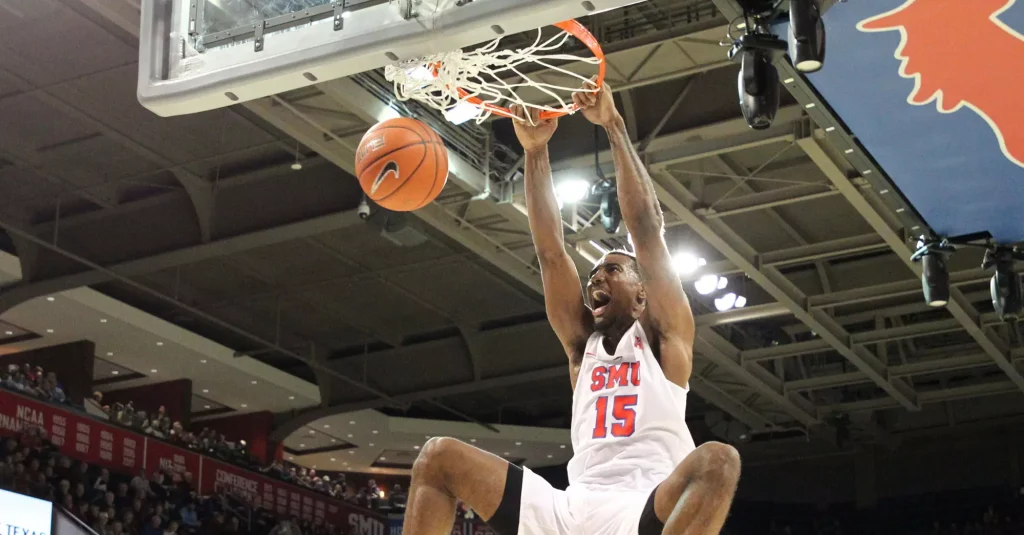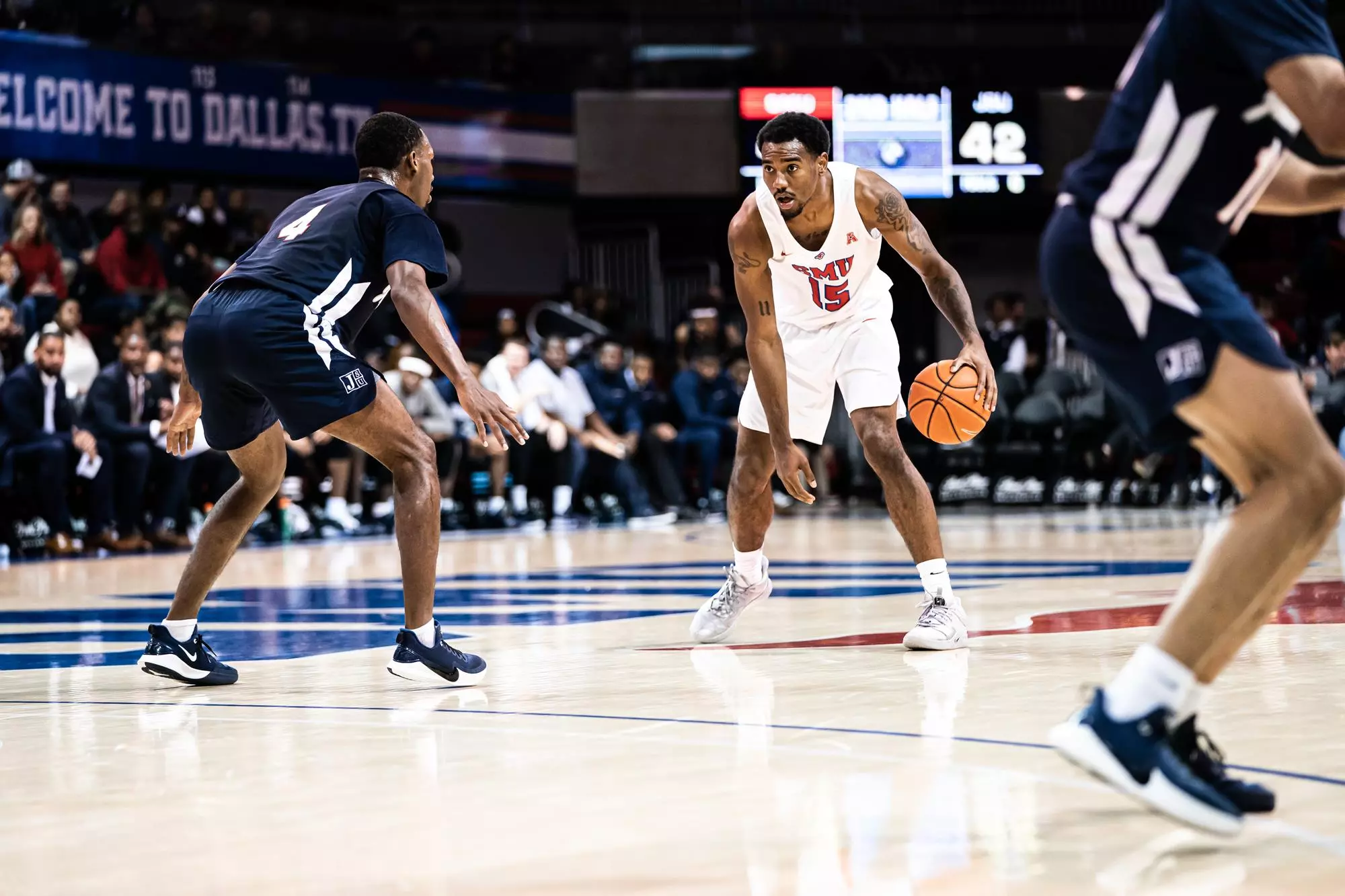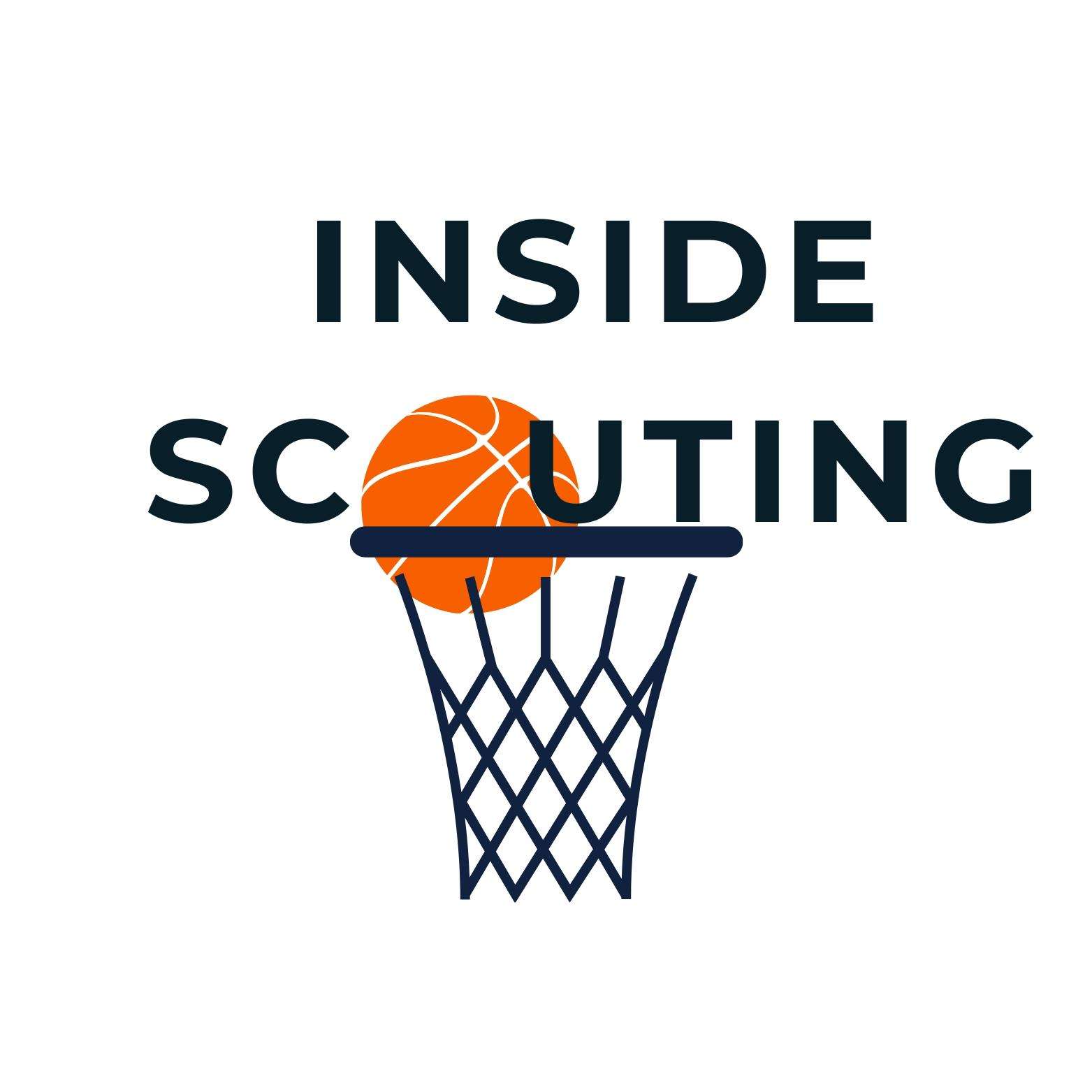INTERVIEWING:
ISIaHA MIKE
- Orazio Cauchi
- Interviews
- 9 October 2024
Our monthly appointment returns with a new basketball personality to introduce to you. This time Inside Magazine brings you a chat with Isiaha Mike, one of the new EuroLeague rookies, who signed a contract with the historic Serbian club Partizan Belgrade. Mike, a Toronto native, was one of the most up-and-coming players on the European scene in recent seasons. His last two seasons in France with Bourg en Bresse turned him into one of the most attractive players on the market.
Last season, thanks to his performances in the EuroCup, he was included in the All-EuroCup First Team, further confirming that he was ready for the jump to Europe’s top competition, the EuroLeague. During the offseason, several clubs were interested in Mike, but when coach Obradovic’s Partizan Belgrade entered the mix, Isiaha had no doubts and chose to join the Serbian club.
We spoke with Isiaha about his journey from his college experience in the United States to his transition to professional basketball in Europe. Who were the decisive people in your career? What improvements were crucial to becoming the player he is today? Let’s find out the answers to these questions together.
Isiaha Mike: “Well, now it’s different. When I was in college, the rule was that when you decide to transfer from one school to another, you have to sit down for a year, unless you have some kind of medical exemption. So, when I moved to SMU, I had to sit down for an entire season. I trained a lot during that year, I was lifting like crazy, I was like 10-15 pounds heavier than my previous year, I was in every practice. My whole activity wasn’t that different from the rest of the team, I just couldn’t play because of the transfer rule. Overall, I’d say that the experience was challenging but it was worth it.”
Q: “How much do you think those last two years at SMU helped you in preparing for the professional world?”
Isiaha Mike: “I think that those final two years in college the aspect that I worked the most on it was my temperament. I was very young, and very naive, I was only thinking about the stuff that would have got me paid in the future. I wasn’t focused on the entirety of the game, only in the aspects that I thought were important. During those two years, though, I learned that I had to change the way that I express my emotions and my passion for the game. The biggest thing, probably, was the way that I communicated with my teammates. I was always so fired up that, at times, I told my teammates true things but the way that I expressed those things, they were kind of detrimental to what we were trying to achieve as a team. So during those two years, I believe that my emotional maturity improved a lot.”
Q: “When you made the transition from college basketball to the professional world, what was the main difficulty that you faced in that transition? You played in Germany in your first season in Europe, how would you describe that experience?”
Isiaha Mike: “The very first thing that comes to my mind about my first year in Europe was the Covid. I arrived in Europe in 2020, so that was very challenging. When I joined Chemnitz I was told that they had one of the best home court experiences in Germany, but I didn’t get to experience that in my first year. As far as basketball stuff, I had a few discussions with my head coach at that time, we had a good relationship but I guess I wasn’t used to how fixated on their basketball principles coaches can be here in Europe, they might not be as flexible as they can be in the US. Let’s say that if the coach wants something to be done in a certain way, it has to be done in that specific way, so basketball conversations were less fluid than I expected. So I believe that me being still a little stubborn played a part in some of the difficulties that I had in my first season in Europe. The following year I was definitely more involved, I fully bought in on the team. Just realizing that is not always necessary to have a conversation on something, but just do whatever is necessary for the team. So I’d say not necessarily having my voice heard right away was one of the main challenges that I had to face when I made that transition from college to Europe.”

Isiaha Mike: “I’d say eliminating the off-court distractions. Like I said before, coming out of college I was still pretty young-minded, I wanted to go out, I wanted to party every other weekend, and I was just focusing on the wrong things. But when I was in France I had my family with me and they allowed me to focus on what’s really important, do you know what I mean? I was just trying to be better as a human, that really helped me. Regarding on-court stuff, I feel like I’ve been doing the same stuff since I came to Europe, cutting, dunking, and just doing whatever I can to help my team. My stats have grown tremendously year after year, and playing in a European competition also played a factor. My second year in the EuroCup was much better than the first one, just because of the dynamics of the team. So, overall, I’d say changing my mindset, focusing on the important things, really helped in tapping to another level of performance.”
Q: “Could you describe a little bit the process that brought you to Partizan this summer? Did you have many offers on the table? How much did you know about the history of the club?”
Isiaha Mike: “There were a few offers on the table but once Partizan came into the conversation, I didn’t waste any time. I was evaluating my opportunities in the NBA, doing workouts with a few NBA teams, because I feel like I’m an NBA caliber player, it’s just a matter of fit and timing. But again, once Partizan came into play, for me it was like a done deal, really. The opportunity to play for coach Obradovic, the amazing atmosphere that they have here in Belgrade, it was really a no-brainer for me. I didn’t know much about the history of the club, although I definitely remember that big brawl that they had with Real Madrid during the EL playoffs.”
Q: “You joined Partizan Belgrade only recently but I was wondering if you could share with us your experience with such a legendary coach like Zeljko Obradovic so far.”
Isiaha Mike: “Oh, I love it, man! He’s very detail-oriented, he always explains in detail what he wants from you. I think we have a very talented group with the right mix of youth and experience. I feel like we’re gonna have a strong year, we’re gonna overachieve a lot of the opinions that were shared about us. At the end of the day, it’s very simple what coach Obradovic wants out of us, it’s all about the intensity and taking care of the little things, because, especially at this level, all those little details can cost you a couple of positions in the seeding, if you don’t take good care of them. Once we’re gonna be all on the same page, taking care of all these little details, I think it’s gonna be a very special year for us.”

Isiaha Mike: “Honestly, I feel like it’s hit or miss, man. I was lucky enough that, so far, I always had really good experiences in great environments, where money was always on time and overall the club treated me in a great way. But if I could give any advice to someone coming out of college who’s about to make that transition to European basketball, I believe the main one would be: do your homework. Take information on the clubs that are interested in you, try to understand if that specific country you’re going to, is somewhere where the volatility of the market is too high, and if that particular team changes its roster way too much. For example, is this a team that is known for swapping coaches every season? Are you playing once a week or twice a week? Are you entitled to bonuses if you play in a cup? There are a hundred questions I didn’t know I needed to ask when I made my very first interview with my first club in Germany. Because there were so many things that I didn’t know, I was just thinking: I’m gonna go there, play basketball, get paid and that’s it. For example, my first year in Germany, it was the first season of Chemnitz in the BBL, the top German league. Since we were newcomers in the league, we didn’t play in the German Cup. The following season I signed pretty much the same deal, without including any kind of bonuses for the cup, which we ended up playing, so I missed on potential bonuses because I didn’t know enough details. At the end of the day, each path is gonna be a little bit different and you have to learn some things through the experience.”
Q: “What do you think about the recent changes in the college basketball world? Now, with the NIL deals, players have the opportunity to get paid and really use their image to build their own careers. How much do you think these changes will impact the decision process of every player at the college level?”
Isiaha Mike: “To be honest, I think it’s a slippery slope, man. I’m all for players getting paid and when I first heard about these NIL deals, the figures that were thrown around, I was like “Wow, some of these kids are gonna make more money than me”. The positive aspect is that kids that maybe wouldn’t ever get to the pro level or they would have played at a really low level, they can earn some real money in college and I think that’s amazing because you still get a chance to provide for your family. But at the same time, if you’re not getting the right pieces of advice and if you’re as reckless as I was during college, it’s very easy to squander your money because you’re earning a lot but you don’t know how to manage all that money. It’s extremely easy to get used to that lavish lifestyle, you watch the NBA players with all that diamond necklace, get in the club and pick up the check for like 15 people, and in college, you have pretty much no responsibilities, so it’s really easy to waste all that money that you’re making. That’s why I believe these NIL deals can also be detrimental sometimes for the younger players. I believe there’s a lot of room for the downfall of these kids but again, I’m all for these kids getting paid”.
Q: “Before you mentioned the fact that you believe that, talent-wise, you’re an NBA caliber player. So, is it fair to say that your next goal would be to get to the NBA level?”
Isiaha Mike: "Yeah, absolutely. But as I said before, it's about fit, not necessarily about skill, it's about what the team is looking for in that particular moment. For example, last season I played with Zaccharie Risacher, he was one of the best players in the EuroCup last season and he's only 18. So I feel like the timeline for him to reach his ceiling is wider than mine. But I definitely feel like I'm an NBA player but I made it peace with it, do you know what I mean? If I get to that level, then it's great. If EuroLeague is my top, then it's great too, I'm still playing in the highest International league in the world, some of the best basketball players in the world are playing in the EuroLeague, and NBA veterans are leaving the NBA to get to play here. So it's not about skill per se, because the talent pool in the EuroLeague is ridiculously high, some players that were averaging 15-20 points in the NBA, come here in the EuroLeague and maybe they average only 8-10 points. I still feel like there's some incomprehension regarding how really good the EuroLeague is, especially among the players in the NBA".
